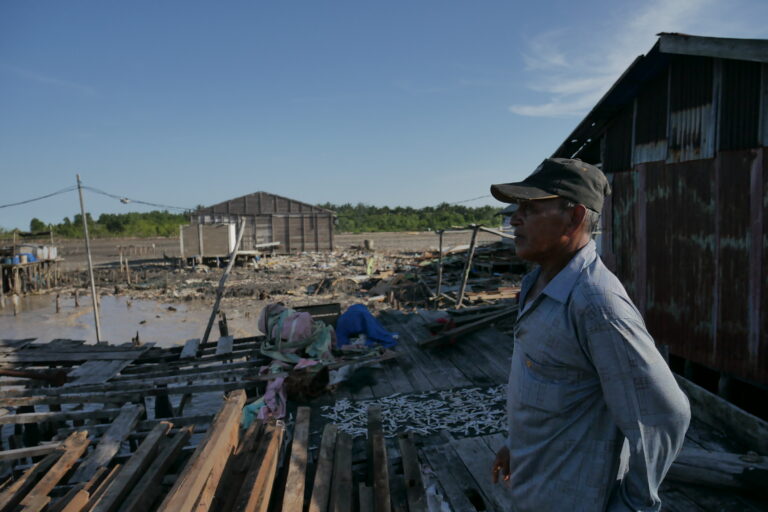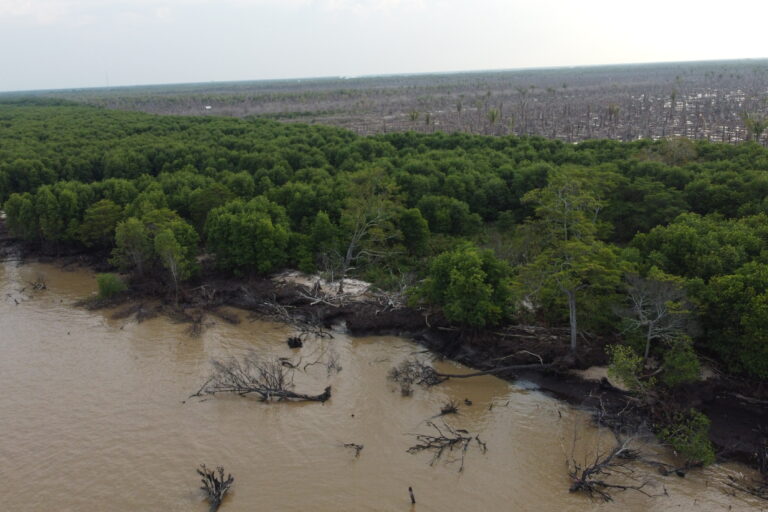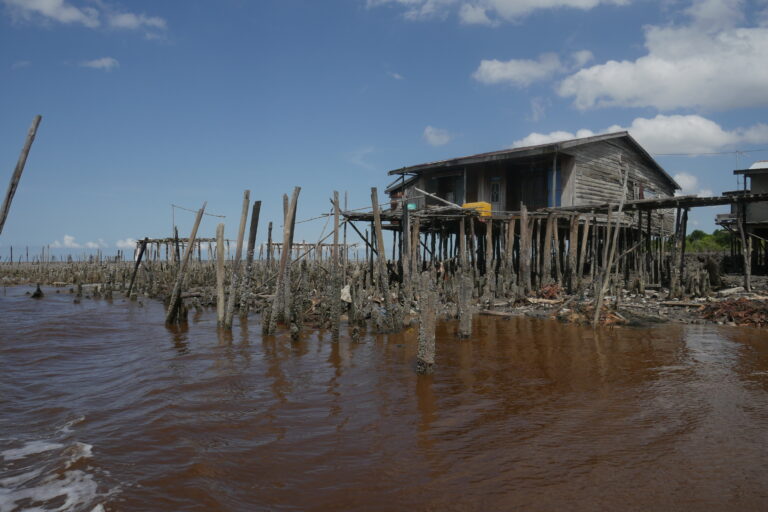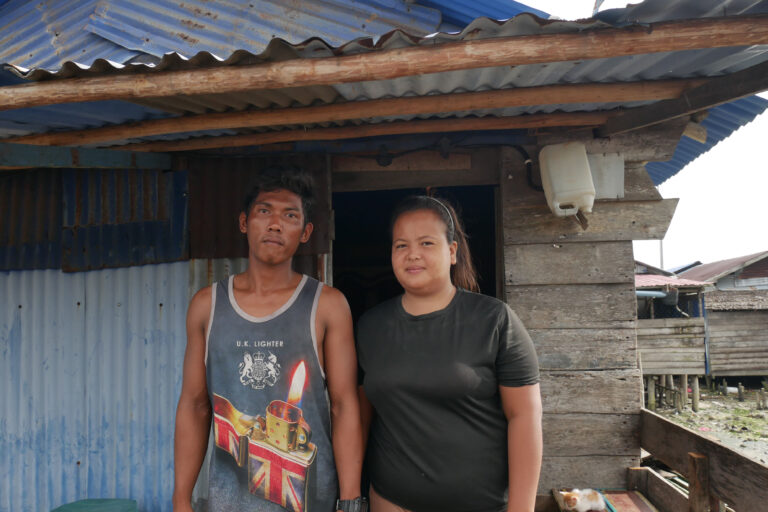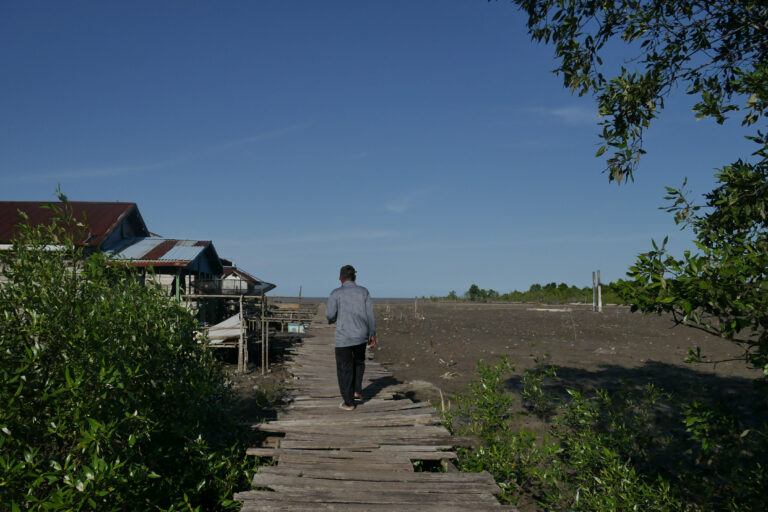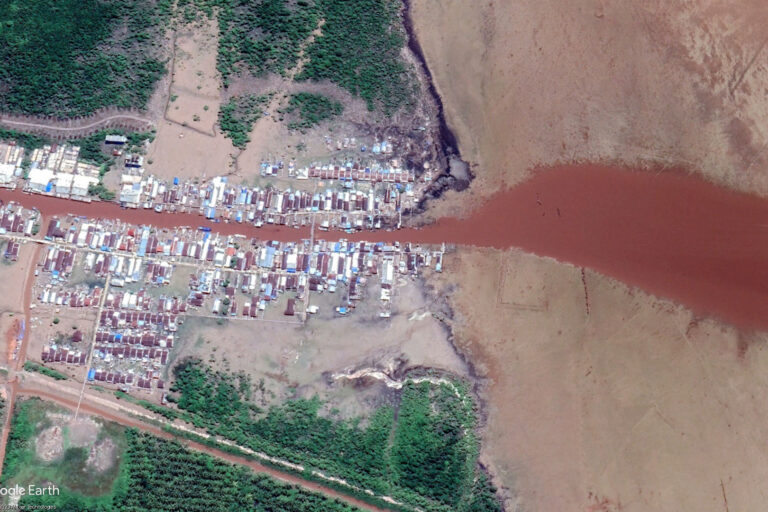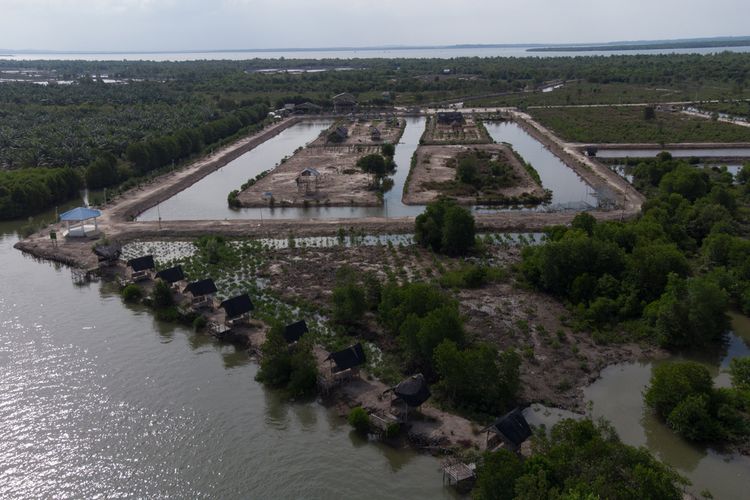This story excerpt was translated from bahasa Indonesia. To read the original story in full, visit Mongabay. You may also view the original story on the Rainforest Journalism Fund website. Our website is available in English, Spanish, bahasa Indonesia, French, and Portuguese.
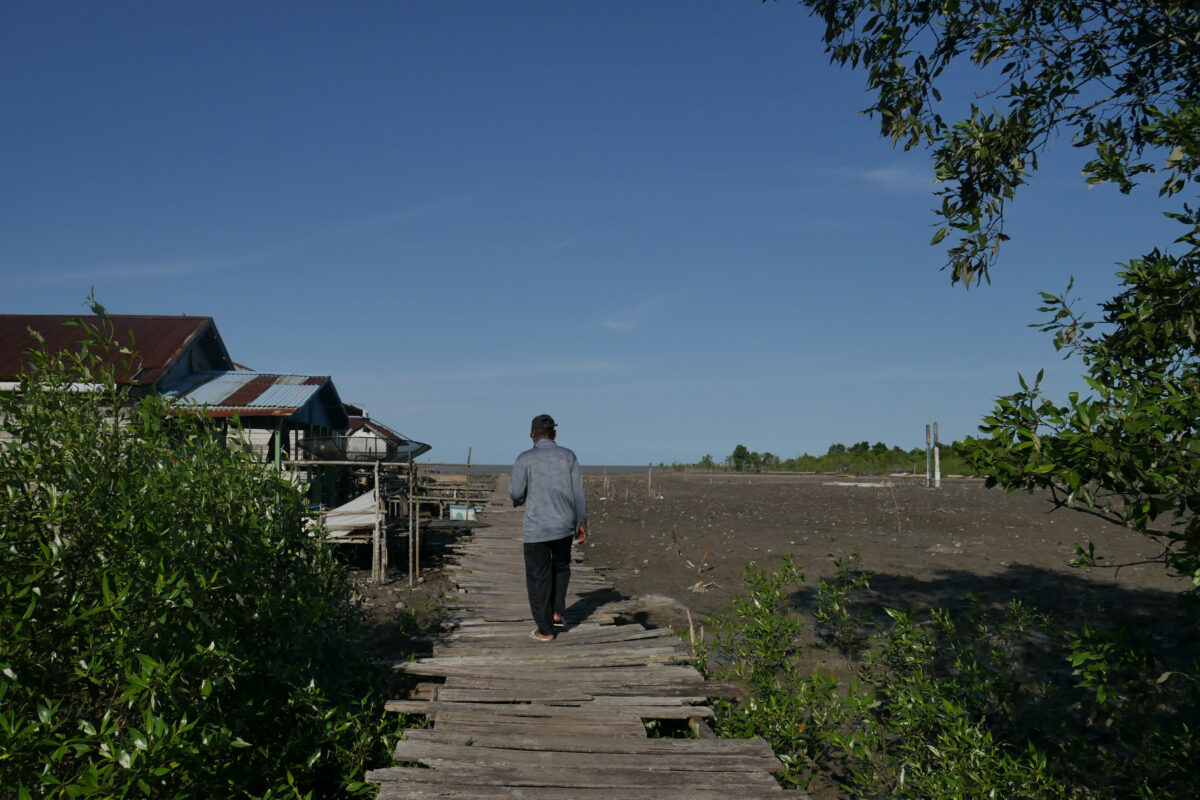
- The Duano tribe was nicknamed "Orang Laut" on the east coast of Riau. In the past, the tribe's members could fulfill their needs from the sea. Now, the Orang Laut must struggle to survive amid climate change and the destruction of mangrove forests.
- The mangrove forest, which is the living space of the Duano tribe, was damaged due to mangrove and fire wood logging activities. Mangrove forests are no longer the main catchment area for fishermen. There are no more fish eggs that breed there.
- The Duano tribe is mostly small fishermen with traditional canoes and fishing gear. They only catch fish on the shoreline. The difficulty of fish in the near sea has forced some of them to become fishing laborers.
- Conditions worsen when their place of life is threatened by abrasion. Based on satellite imagery using Google Earth Pro, which recorded conditions from 2008 to 2023, it appears that the coastline is changing. According to residents, abrasion continues to occur because sea waves are getting higher, exacerbated by mangrove forests on the coast being eroded.
Two fishermen came to deliver their catches to Samsuri's house. Before that, several fishermen also came to sell their catches to the fish collector in Kuala Selat Village, Indragiri Hilir, Riau. That day, Samsuri collected 45 kilograms of fish from no more than 10 fishermen.
"Now [the catch] is uncertain, unpredictable. It keeps going down," said the 52-year-old man.
That afternoon in late July, he got several types of fish caught by fishermen, such as mackerel and tuna, looking fresh. Although not much, it's not bad for traditional fishermen who rely on small boats and simple fishing gear. The nets are sometimes not strong enough to withstand the sea currents.
Samsuri's is one of 33 Duano families who live on the coast of Kuala Selat Village. He gave up being a fisherman five years ago. He is a collector. He often worries when fishermen do not bring anything after going to sea.
After decades of living on the coast, only a few have survived as fishermen. The challenges at sea, he said, are getting tougher. The day before, he only collected 60 kilograms of fish from the remaining dozen Duano fishermen.
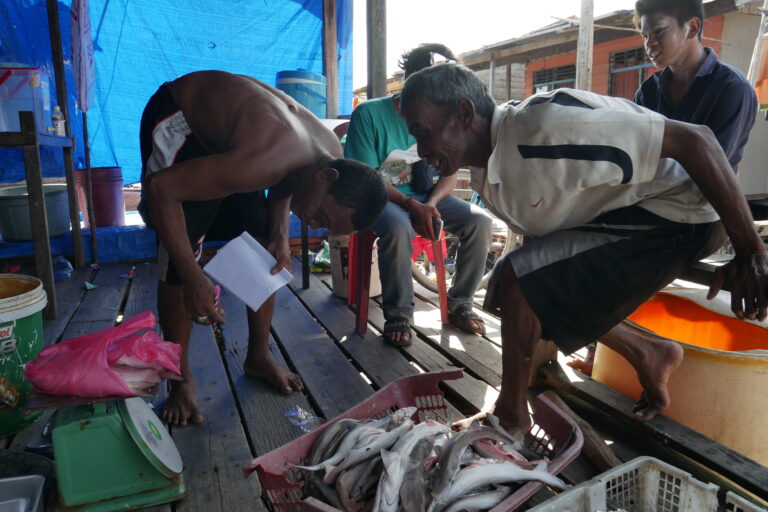
In previous times, Samsuri said, collectors could get up to one pikul, or at least 80 kilograms, of fish after a day at sea. It was not uncommon for a fisherman to bring home 30 kilograms of fish after one day at sea.
The catch from the sea is getting smaller every day. With traditional boats, they have to go further into the middle of the sea, the closest being about 2-3 miles from the coast.
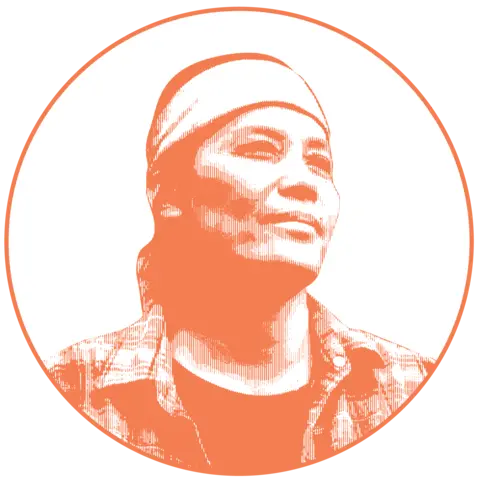
As a nonprofit journalism organization, we depend on your support to fund journalism covering underreported issues around the world. Donate any amount today to become a Pulitzer Center Champion and receive exclusive benefits!
Several decades ago, the Duano tribe lived on canoes, moving from coast to coast, never settling in one place. Because of this nomadic lifestyle at sea, the Duano tribe was nicknamed "Orang Laut."
